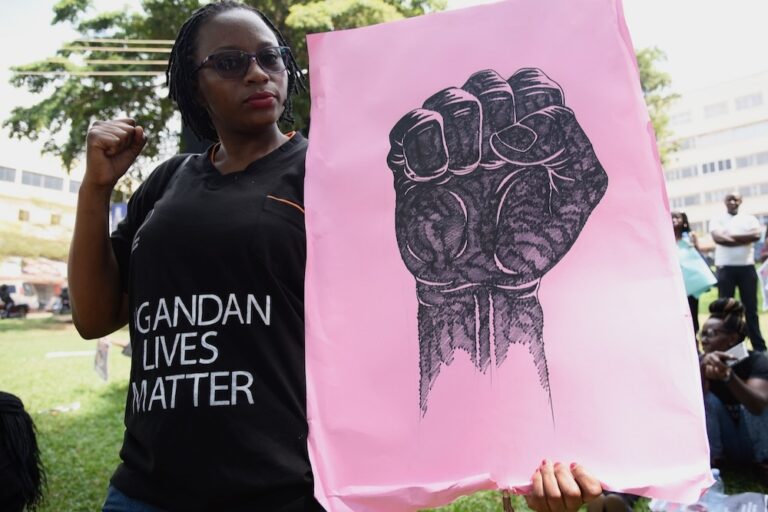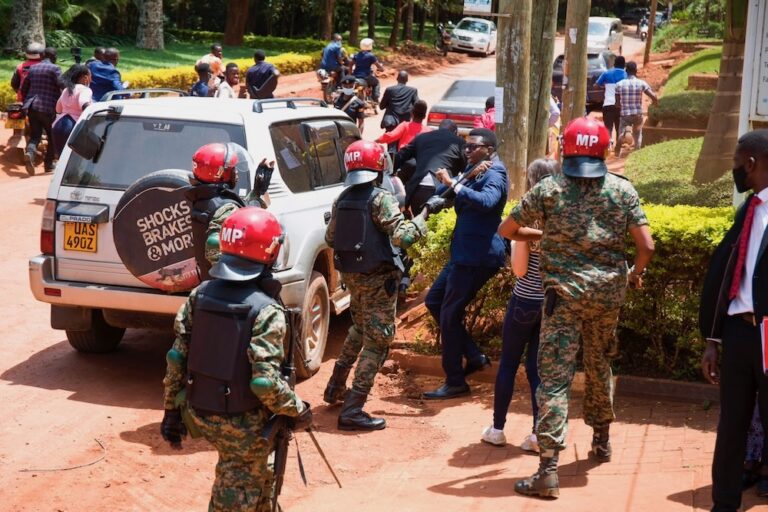HRNJ-Uganda has launched a campaign to mitigate the deteriorating security situation for journalists in the lead up to, as well as during and after, upcoming general elections.
(HRNJ-Uganda/IFEX) – Kampala, 14 December 2010 – The Human Rights Network for Journalists-Uganda (HRNJ-Uganda) has launched a campaign to mitigate the deteriorating security situation for journalists in the lead up to, as well as during and after, the upcoming February 2011 general elections.
The campaign offers a complaint handling mechanism (a toll free helpline for victim journalists), establishes press freedom monitors and standby lawyers based in all regions, and will hold meetings with different stakeholders, including security agencies, political parties and government officials, among others.
The campaign comes at a time when a “Ten-Month Case Report” released by HRNJ-Uganda has indicated that more than 50 journalists were subjected to different forms of violence.
The report reveals that radio workers are at a higher risk compared to their counterparts in the print media, with 17 cases followed by reporters. Others were photojournalists, with 15 cases, television workers, with four casesm and one journalist working for an online publication. “The number of victims this year is outrageous. It doubles the cases recorded in 2009 and it’s a worrying trend for the media in Uganda,” HRNJ-Uganda Programmes Coordinator Geoffrey Wokulira Ssebaggala said.
The period under review witnessed threats reaching their peak with the murder, by mob violence, of two journalists, Paul Kiggundu and Dickson Ssentongo, both working for the Christian radio stations Radio Top and Radio Prime, respectively. This occurred at a time when the media was just recovering from the unprecedented crackdown by the government in 2009, following widespread riots and ending in the closure of five radio stations. All these radio stations are back on the air, but the media is now compelled by fear of antagonizing the state to institute a high level of self censorship that has, to a large measure, impacted on the quality of content and devalued the essence of the media as a public sphere.
This atmosphere has created the worst environment for the media in the history of Uganda. Cases witnessed in the period under review included attacks and threats (14 cases), illegal arrests and detentions (eight cases), torture/inhuman treatment, (seven cases), judicial sanctions, (seven cases), police harassment (five cases) and state interference (1 case).
(. . .)


